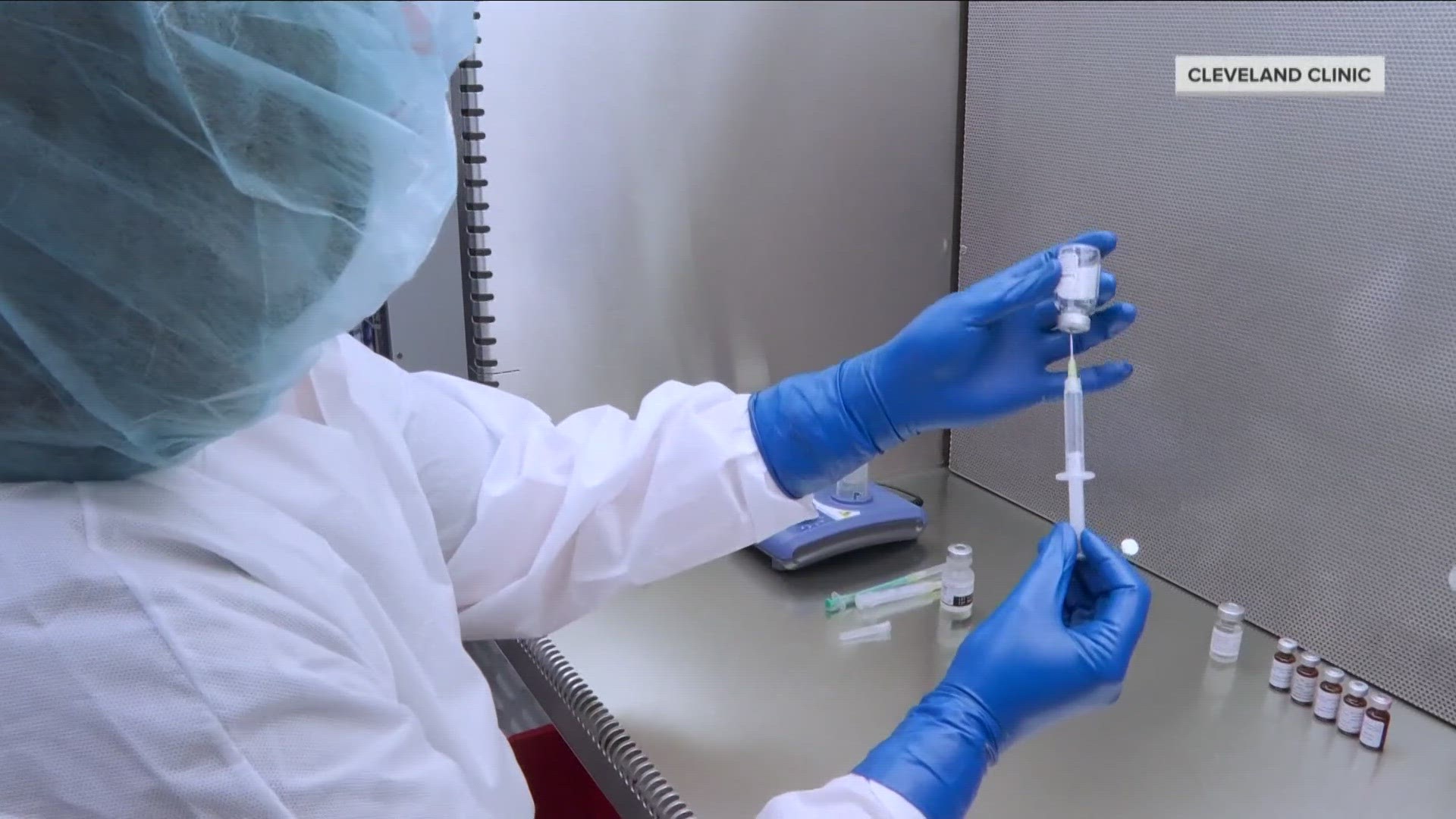BUFFALO, N.Y. — Roswell Park is set to be at the center of a clinical trial that could revolutionize the way breast cancer is treated.
The Pink Eraser Project is entering Phase 2 of clinical trials and joining doctors from six of the nation’s top cancer centers, including Roswell Park, to test a vaccine that could fight breast cancer.
Originally created at the University of Washington in the early 2000s, the project started with 66 women with Stage 4 breast cancer — a cancer with a median survival rate of just five years. It found that after administering the vaccine, 80% of patients were still alive 10 years later.
“The ultimate goal would be to get rid of toxic treatments and replace it with vaccines,” said Dr. Shipra Gandhi, who is leading the team at Roswell Park. “This vaccine looks really promising, and we are hoping that if this trial is successful, we are probably headed in that direction towards cure.”
One of the most taxing parts of cancer treatment are the side effects of chemotherapy, which often reduce quality of life for patients. Kathy Graim, a Roswell Park patient who was diagnosed with Stage 3 breast cancer in 2009, said she experienced that firsthand.
“It really affects kind of your bones and everything else,” Graim said. “Just trying to keep my head up could be difficult at times.”
The new vaccine would be aimed at taking an alternative approach where instead of killing all the cancer cells and good cells simultaneously, it would train a patient’s body to fight the cancer cells on its own. The only side effect experienced in the first phase of the trial was pain at the site of the injection.
“If we can attain the same efficacy while the quality of life is maintained, I think that would be a big win for our patients,” Gandhi said.
The trial could take years before potentially receiving FDA approval, but it is set to begin at Roswell Park in a matter of months.
The potential of a simpler form of treatment provides hope for patients like Graim, who still thinks about the next generation of those who may suffer from breast cancer.
“Having two daughters that are at risk of getting cancer and to have a vaccine that's going to be able to hopefully protect them, I think that it's just a wonderful medical breakthrough,” she said.

